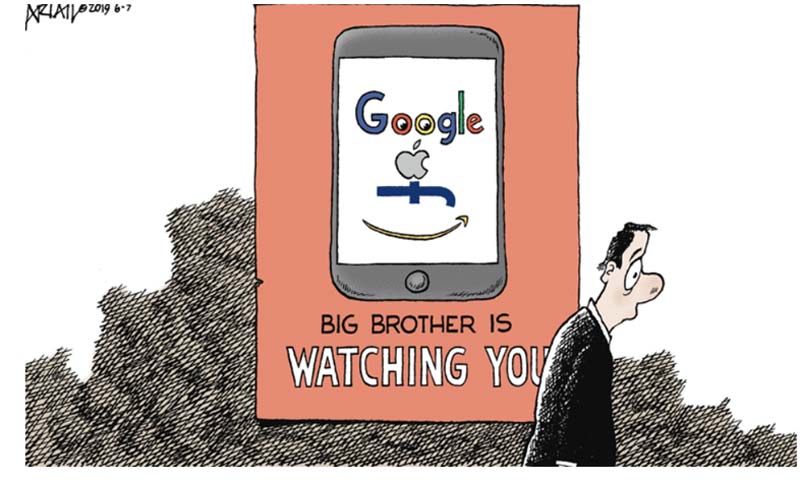
A recent front-page article in The Wall Street Journal - "Surveillance Parents Face the Ultimate Firewall: Freshman Year" — described the difficulty — even agony — some parents are feeling when their kids go off to college and are harder to monitor and help from afar.
I don't blame parents for the fear and loss they feel at any stage of the parenting game. However, I DO blame a culture that has gotten both generations used to the idea that kids doing anything on their own will simply fail (or feel bad trying), so they need constant supervision and assistance.
Thus the Journal piece, by Tara Weiss (who seems to have her finger on the pulse of modern parenting), quotes a mom in a 24,000-parent support group on Facebook. The mom is "so worried for my child" who is dealing with, as Weiss puts it, "a humid room, broken laundry card and other small inconveniences."
That this mom is worried — well, that's sad. I wish she had some faith that her kid could figure things out. But the fact that someone else in the group chimed in, "I'm so sorry. So hard on our mama hearts when they struggle" — that's not sad. That is actually a cultural artifact. Years from now, anthropologists reading that thread will declare that this is the moment when the word "struggle" ceased to mean "a difficult challenge" and came to mean "a child doing anything without an adult's help."
Dumb down "struggle" and you dumb down a generation. To wit, another mom cited in the piece wonders what kind of device she could get for her son that would make sure he wakes up in time for class.
Hmm. What could that device be? It sure would be popular.
And another mom (Go, Tara!) told her support group that when she checked her phone at 1 a.m. to see where her son was, he wasn't in his dorm room. Is it possible, she wondered, that the Snapchat map was inaccurate?
I'll let you draw your own conclusions.
This kind of worry — like many kinds of worry — is best treated by exposure therapy: exposure to how it feels to NOT always check on your kids. Exposure to how great it feels to see them muddle through on their own.
Yet the colleges themselves have decided - like enablers — to keep this codependent relationship going. According to one parent, Ohio State University sends home a "barrage" of emails, including instructions on how to delicately tell your kid that the deadline for finalizing their schedule is BARRELLING DOWN! You don't have to say it that bluntly. "It suggested parents might say: Are you planning on adding or dropping a class?" Weiss writes.
There's even an association (of course there is) for college administrators in charge of parental communication. It had 49 institutional members in 2009. Now it has 230. Meanwhile, the number of parents interacting daily with their college kids grew from 37% last year to 44% this year.
That's quite a leap!
I realize that a simple text — "Did you get into the play?" or "Hope the test went well" — does not make or break a young person. But the belief that our kids need this kind of volley to feel attached and loved is not true. Kids and parents are more firmly attached than that.
And the belief that kids need our help to replace a laundry card from three states away is not a belief in anything but our kids' cluelessness.
Which, if we can stand back and let our children blossom, college is about to change.


 Contact The Editor
Contact The Editor
 Articles By This Author
Articles By This Author